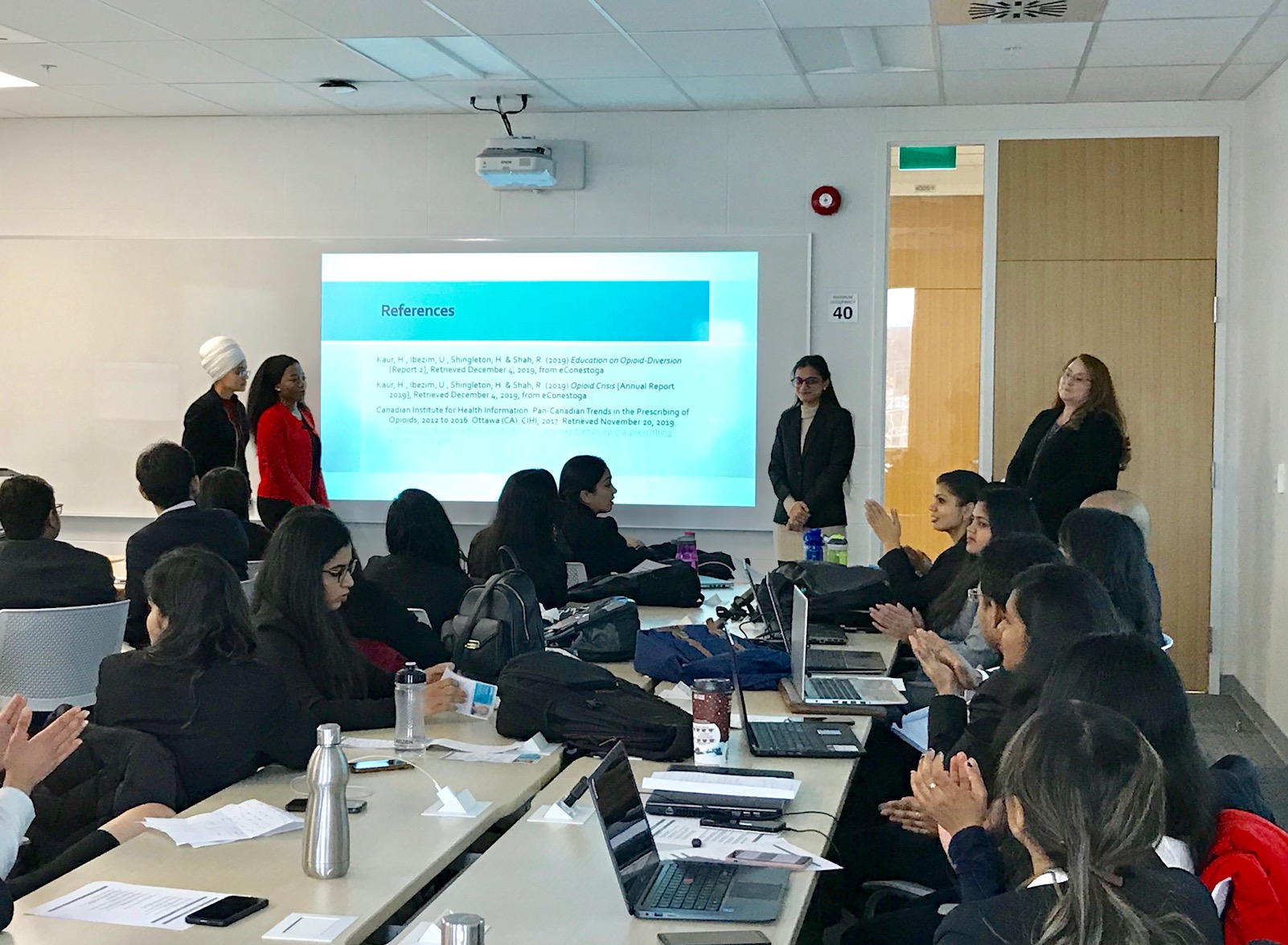Between December 11 and 13, the first cohort to graduate from the Health Care Administration and Service Management two-year graduate certificate program presented their capstone projects to faculty, guests and industry representatives at the Waterloo campus.

Health Care Administration and Service Management students Harpreet Kaur, Uloma Ibezim, Riddhi Shahand and Helen Shingleton addressed the problem of opioid use for their capstone project. The students are part of the first cohort to complete the program.
The projects examined key health care system issues and problems and required students to apply the concepts they have learned throughout the program to asses the impact of the problem on human resources, organizational culture, leadership, finances, policy and operational goals.
“I was able to utilize many new skills to guide me through the capstone project. From planning to the initiation, I learned how to research, assess and prepare professional quality documents suitable for a workplace environment,” said Helen Shingleton, a student in the program. “I gained a full understanding of the intricacies of organizational leadership. I was able to apply critical thinking techniques to create solutions to arising challenges, difficult negotiations and conflict resolution. I also applied some of the theories of human resources management to ensure team cohesiveness and project success.”
Shingleton’s team included Harpreet Kaur, Riddhi Shah and Uloma Ibezim and together they addressed the problem of opioid use. According to their research, Canada is the second largest per capita consumer of opioids in the world, behind only the United States.
As part of their capstone course, each group of four students was required to produce a collection of 12 reports that ranged from a project charter and vision framework, to specific plans for human resources, risk management and quality management. The capstone presentation is a 10-minute summary of those reports, followed by a question and answer period with the industry representatives who were in attendance.
Other teams explored themes around workplace violence, drug shortages, mental health, obesity and programs to support newcomers.
This cohort of students, who all earned credentials in the health care field before enrolling at Conestoga, will be the first to graduate from the program and will celebrate their convocation in February 2020.
“Regardless of where you are in your life, goals should still be important,” said Shingleton. “I enrolled in the program to increase my professional knowledge and training to help me take the next step up and attain a leadership role within the healthcare industry.”
Like Shingleton, students Naindeep Kaur and Karamvir Singh are also interested in attaining a leadership role upon graduation where they can use the skills and knowledge they have learned at Conestoga. Kaur has been trained as nurse and Singh previously studied pharmacy.
“This is an incredible, accomplished group of professionals graduating from the program,” said Laura Turner, program coordinator. “The health system can only be improved through the skills, enthusiasm and leadership that these students will bring to their future roles.”
The Health Care Administration and Service Management program provides those with health care credentials with leadership theories and practical applications specific to the health care environment. The curriculum is geared toward providing a wide base of professional skills in a health care context such as finance, communication, human resources, leadership, operations and critical thinking.
